Toxics
How Your Body Tells You it has Toxic Overload
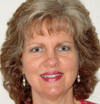 Today my guest is Dawn Roberts, author of Warnings of Disease: Your Body Uses Symptoms to Communicate. We’ll be talking about why you should pay attention to your symptoms as indicators something is wrong with your body that needs healing, rather than making them go away with drugs or even natural remedies. While struggling with over 100 symptoms, 35 diagnosed diseases, and weight gain, Dawn had questions regarding her failing health, yet no medical doctor could provide an answer. Suffering with neurological problems, doctors suspected that Dawn had either MS, Parkinson’s, or Lou Gehrig’s disease. But the reality was that doctors were doing nothing to help, neither were the 23 medications that they prescribed. In fact, Dawn got sicker with each passing day until she said, “Enough, is enough!” This began her crusade to find the cause of disease and to eliminate it from her life. Dawn turned to a Chiropractor/Homeopath for help. With his assistance, and a total change in her lifestyle and eating habits, Dawn was totally healed. Chronic disorders, even heart disease, simply vanished. At the persuasion of her Chiropractor to write a book, Dawn embarked on a 15-year scientific journey to do research. She then took a hiatus from her work as a Forensic Document Examiner to write Warnings of Disease. Through this work, Dawn hopes to use her personal experience to help others. Her mission is to help people, who are sick, diseased and overweight,
Today my guest is Dawn Roberts, author of Warnings of Disease: Your Body Uses Symptoms to Communicate. We’ll be talking about why you should pay attention to your symptoms as indicators something is wrong with your body that needs healing, rather than making them go away with drugs or even natural remedies. While struggling with over 100 symptoms, 35 diagnosed diseases, and weight gain, Dawn had questions regarding her failing health, yet no medical doctor could provide an answer. Suffering with neurological problems, doctors suspected that Dawn had either MS, Parkinson’s, or Lou Gehrig’s disease. But the reality was that doctors were doing nothing to help, neither were the 23 medications that they prescribed. In fact, Dawn got sicker with each passing day until she said, “Enough, is enough!” This began her crusade to find the cause of disease and to eliminate it from her life. Dawn turned to a Chiropractor/Homeopath for help. With his assistance, and a total change in her lifestyle and eating habits, Dawn was totally healed. Chronic disorders, even heart disease, simply vanished. At the persuasion of her Chiropractor to write a book, Dawn embarked on a 15-year scientific journey to do research. She then took a hiatus from her work as a Forensic Document Examiner to write Warnings of Disease. Through this work, Dawn hopes to use her personal experience to help others. Her mission is to help people, who are sick, diseased and overweight, 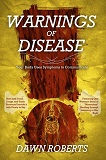 realize that junk food and toxic chemicals are perpetuating their problems. Dawn has been happily married for 32 years, and is the proud mother of two sons and a new daughter-in-law. She lives alongside a tranquil and serene river bordered by a Florida State Forest with her high tech husband, pre-Chiropractic son, 2 rambunctious dogs, a brood of chickens, and some crazy guinea hens. www.dakemani.com
realize that junk food and toxic chemicals are perpetuating their problems. Dawn has been happily married for 32 years, and is the proud mother of two sons and a new daughter-in-law. She lives alongside a tranquil and serene river bordered by a Florida State Forest with her high tech husband, pre-Chiropractic son, 2 rambunctious dogs, a brood of chickens, and some crazy guinea hens. www.dakemani.com
The Dangers of Prenatal Exposure to Bisphenol-A (BPA)
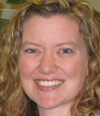 Today my guest is Gretchen Lee Salter, Senior Program and Policy Manager for the Breast Cancer Fund. We’ll be talking about a new report called Disrupted Development: The Dangers of Prenatal BPA Exposure, which is about how a pregnant woman’s exposure to BPA can affect her child’s development after birth and throughout their lives. Gretchen has played a leading role in the passage of landmark laws in California, including bans on toxic chemicals in children’s toys and feeding products and legislation that established the state’s biomonitoring, Safe Cosmetics and Safer Consumer Products programs. These efforts have served as models for environmental health policy in other states and federally. Gretchen also manages the Breast Cancer Fund’s Cans Not Cancer corporate accountability campaign, which has resulted in Campbell’s announcing it will phase out the use of the toxic chemical BPA. Before joining the Breast Cancer Fund, she worked as an organizer, advocate and activist in both legislative and electoral politics, including serving as the national budget director for the Democratic National Committee and working on presidential campaigns. Gretchen received a B.A. from the University of California at Davis. www.breastcancerfund.org
Today my guest is Gretchen Lee Salter, Senior Program and Policy Manager for the Breast Cancer Fund. We’ll be talking about a new report called Disrupted Development: The Dangers of Prenatal BPA Exposure, which is about how a pregnant woman’s exposure to BPA can affect her child’s development after birth and throughout their lives. Gretchen has played a leading role in the passage of landmark laws in California, including bans on toxic chemicals in children’s toys and feeding products and legislation that established the state’s biomonitoring, Safe Cosmetics and Safer Consumer Products programs. These efforts have served as models for environmental health policy in other states and federally. Gretchen also manages the Breast Cancer Fund’s Cans Not Cancer corporate accountability campaign, which has resulted in Campbell’s announcing it will phase out the use of the toxic chemical BPA. Before joining the Breast Cancer Fund, she worked as an organizer, advocate and activist in both legislative and electoral politics, including serving as the national budget director for the Democratic National Committee and working on presidential campaigns. Gretchen received a B.A. from the University of California at Davis. www.breastcancerfund.org
The Dangers of Antimicrobials and How to Choose Products Without Them
 My guest today is Larry Plesent, Founder of Vermont Soap. We’re going to talk about why you shouldn’t use toxic antimicrobials, which products contain them and where you can find antimicrobial-free alternatives, and some toxic free ways to kill germs. Vermont Soap makes “100% natural and non-toxic alternatives to the chemical based personal care products now in general use, including; handmade bar soaps for sensitive skin, anti-aging products, 100% natural shower gels, castile liquid soaps and non-toxic cleaners. Most products made by Vermont Soap are certified to USDA organic standards.” Larry is also a writer,philosopher, restaurateur and farmer. www.debralynndadd.com/debras-list/vermont-soap
My guest today is Larry Plesent, Founder of Vermont Soap. We’re going to talk about why you shouldn’t use toxic antimicrobials, which products contain them and where you can find antimicrobial-free alternatives, and some toxic free ways to kill germs. Vermont Soap makes “100% natural and non-toxic alternatives to the chemical based personal care products now in general use, including; handmade bar soaps for sensitive skin, anti-aging products, 100% natural shower gels, castile liquid soaps and non-toxic cleaners. Most products made by Vermont Soap are certified to USDA organic standards.” Larry is also a writer,philosopher, restaurateur and farmer. www.debralynndadd.com/debras-list/vermont-soap
How to Determine Your Risk of Harm From an Exposure to a Toxic Chemical
 Toxicologist Steven G. Gilbert, PhD, DABT, a regular guest who is helping us understand the toxicity of common chemicals we may be frequently exposed to. Dr. Gilbert is Director and Founder of the Institute of Neurotoxicology and author of A Small Dose of Toxicology- The Health Effects of Common Chemicals.
Toxicologist Steven G. Gilbert, PhD, DABT, a regular guest who is helping us understand the toxicity of common chemicals we may be frequently exposed to. Dr. Gilbert is Director and Founder of the Institute of Neurotoxicology and author of A Small Dose of Toxicology- The Health Effects of Common Chemicals.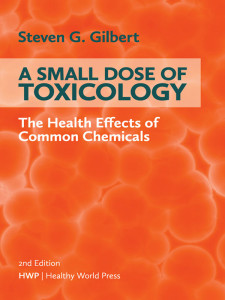 He received his Ph.D. in Toxicology in 1986 from the University of Rochester, Rochester, NY, is a Diplomat of American Board of Toxicology, and an Affiliate Professor in the Department of Environmental and Occupational Health Sciences, University of Washington. His research has focused on neurobehavioral effects of low-level exposure to lead and mercury on the developing nervous system. Dr. Gilbert has an extensive website about toxicology called Toxipedia, which includes a suite of sites that put scientific information in the context of history, society, and culture. www.toxipedia.org
He received his Ph.D. in Toxicology in 1986 from the University of Rochester, Rochester, NY, is a Diplomat of American Board of Toxicology, and an Affiliate Professor in the Department of Environmental and Occupational Health Sciences, University of Washington. His research has focused on neurobehavioral effects of low-level exposure to lead and mercury on the developing nervous system. Dr. Gilbert has an extensive website about toxicology called Toxipedia, which includes a suite of sites that put scientific information in the context of history, society, and culture. www.toxipedia.org
How Recycling and Buying Recycled Products Helps Reduce Toxics
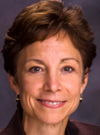 My guest today is Brenda Pulley,Senior Vice President, Recycling, for Keep America Beautiful. Brenda joined Keep America Beautiful in October 2010 to develop, execute, and expand America Recycles Day, an annual event that is happening this Friday, November 15. Keep America Beautiful is collaborating on this campaign with the Ad Council—the nation’s largest producer of public service advertising. Brenda also supports other recycling programs and connects with Washington-based stakeholders. In this role, she identifies and develops strategies for policy issues key to Keep America Beautiful, its mission and members. Brenda began her nearly 30-year career working for the U.S. House of Representatives Energy and Environmental Small Business Committee. In addition to her work on Capitol Hill, she has also worked for both corporations and trade associations. Brenda also serves on the Board of Directors of R2 Solutions – the organization charged with promoting environmentally responsible practices throughout the electronics recycling industry. www.americarecyclesday.org and www.kab.org
My guest today is Brenda Pulley,Senior Vice President, Recycling, for Keep America Beautiful. Brenda joined Keep America Beautiful in October 2010 to develop, execute, and expand America Recycles Day, an annual event that is happening this Friday, November 15. Keep America Beautiful is collaborating on this campaign with the Ad Council—the nation’s largest producer of public service advertising. Brenda also supports other recycling programs and connects with Washington-based stakeholders. In this role, she identifies and develops strategies for policy issues key to Keep America Beautiful, its mission and members. Brenda began her nearly 30-year career working for the U.S. House of Representatives Energy and Environmental Small Business Committee. In addition to her work on Capitol Hill, she has also worked for both corporations and trade associations. Brenda also serves on the Board of Directors of R2 Solutions – the organization charged with promoting environmentally responsible practices throughout the electronics recycling industry. www.americarecyclesday.org and www.kab.org
Proper Disposal of Pharmaceuticals
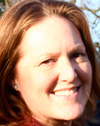 My guest today is Heidi Sanborn, Executive Director of the California Product Stewardship Council, a powerful network of local governments, non-gocernment organizations, businesses and individuals who believe “people should be able to enjoy safer products made without the harmful and toxic components which jeopardize the safety and health of our children, families, and communities.” Today we’ll be talking about how pharmaceutical collection sites can safeguard the environment and our water supply, and help prevent drug abuse by children and teens. Heidi has been a leader in the solid waste industry in California for 22 years, working with industry, government and the public to reduce waste, improve product design and recyclability, and implement cost-effective policies which protect the health of communities. Collaborating with local government leaders, Heidi was one of two original co-directors of CPSC in 2007 to change the way product waste is funded and managed in California; she has since become a nationally recognized thought leader and driver for innovative product stewardship programs across the country. Heidi’s collaborative, tenacious problem-solving approach has delivered unprecedented success in developing Extended Producer Responsibility (EPR) public policy at national, state and local levels. She has engaged diverse stakeholder groups to create and promote best-in-class product stewardship programs for pharmaceuticals, mercury thermostats, carpets, paint, fluorescent lights, and batteries. Heidi speaks throughout the world to raise awareness about product stewardship. She teaches about EPR for the California Resources Recovery Association, and has been frequently published on the topic. Heidi earned a B.A. in Political Science – Public Service from the University of California at Davis and a Master of Public Administration from the University of Southern California. She lives in Sacramento with her husband Brad and three rescue dogs and enjoys adventure travel. www.calpsc.org/products/pharmaceuticals
My guest today is Heidi Sanborn, Executive Director of the California Product Stewardship Council, a powerful network of local governments, non-gocernment organizations, businesses and individuals who believe “people should be able to enjoy safer products made without the harmful and toxic components which jeopardize the safety and health of our children, families, and communities.” Today we’ll be talking about how pharmaceutical collection sites can safeguard the environment and our water supply, and help prevent drug abuse by children and teens. Heidi has been a leader in the solid waste industry in California for 22 years, working with industry, government and the public to reduce waste, improve product design and recyclability, and implement cost-effective policies which protect the health of communities. Collaborating with local government leaders, Heidi was one of two original co-directors of CPSC in 2007 to change the way product waste is funded and managed in California; she has since become a nationally recognized thought leader and driver for innovative product stewardship programs across the country. Heidi’s collaborative, tenacious problem-solving approach has delivered unprecedented success in developing Extended Producer Responsibility (EPR) public policy at national, state and local levels. She has engaged diverse stakeholder groups to create and promote best-in-class product stewardship programs for pharmaceuticals, mercury thermostats, carpets, paint, fluorescent lights, and batteries. Heidi speaks throughout the world to raise awareness about product stewardship. She teaches about EPR for the California Resources Recovery Association, and has been frequently published on the topic. Heidi earned a B.A. in Political Science – Public Service from the University of California at Davis and a Master of Public Administration from the University of Southern California. She lives in Sacramento with her husband Brad and three rescue dogs and enjoys adventure travel. www.calpsc.org/products/pharmaceuticals
Our Toxic World and Why We Need to Do Something
My guest today is Catherine J. Frompovich, author of Our Chemical Lives and the Hijacking of Our DNA. This book is so full of information on toxic chemicals and their health effects, I can hardly describe it. While I usually talk about solutions, today we’re going to be talking about the problem, so you can understand WHY we need to protect ourselves. As a result of her lifelong interest in nature and the natural way, Catherine J. Frompovich enrolled in holistic modalities and natural nutrition. During her studies that led to advanced degrees in Nutrition and Holistic Health Sciences and a Certification in Orthomolecular Theory and Practice, she came to realize how important it is to follow the “owner’s manual” that comes with the human body – Nature’s intended way of life, living, and healthcare. She spent numerous years in practice as a consulting nutritionist and has written many books. In the late 1970s and early 1980s, her books were used by teachers in elementary schools to teach nutrition, a subject – and lifestyle – that she feels truly is imperative in maintaining one’s health from its prenatal stage and throughout life. During the 1980s, she had a cooking show on cable TV, devoted to the natural way of preparing food. For five years, she was the editor of The Healthcare Rights Advocate, a 32 page quarterly newsletter centered on the politics of healthcare in the 1980s. In the 1990s she represented alternative healthcare interests on Capitol Hill, Washington, DC. Now that she’s a widow and retired, she devotes her time to writing books; consults with aspiring writers to get their works into publication, and helps in the design phase of authors’ books. Catherine also continues her several decades-long research in consumer health and its care, plus the politics of healthcare issues. Her work is published online. www.catherinejfrompovich.com
The Basic Principles of Toxicology
 Toxicologist Steven G. Gilbert, PhD, DABT, a regular guest who is helping us understand the toxicity of common chemicals we may be frequently exposed to. Dr. Gilbert is Director and Founder of the Institute of Neurotoxicology and author of A Small Dose of Toxicology- The Health Effects of Common Chemicals.
Toxicologist Steven G. Gilbert, PhD, DABT, a regular guest who is helping us understand the toxicity of common chemicals we may be frequently exposed to. Dr. Gilbert is Director and Founder of the Institute of Neurotoxicology and author of A Small Dose of Toxicology- The Health Effects of Common Chemicals. He received his Ph.D. in Toxicology in 1986 from the University of Rochester, Rochester, NY, is a Diplomat of American Board of Toxicology, and an Affiliate Professor in the Department of Environmental and Occupational Health Sciences, University of Washington. His research has focused on neurobehavioral effects of low-level exposure to lead and mercury on the developing nervous system. Dr. Gilbert has an extensive website about toxicology called Toxipedia, which includes a suite of sites that put scientific information in the context of history, society, and culture. www.toxipedia.org
He received his Ph.D. in Toxicology in 1986 from the University of Rochester, Rochester, NY, is a Diplomat of American Board of Toxicology, and an Affiliate Professor in the Department of Environmental and Occupational Health Sciences, University of Washington. His research has focused on neurobehavioral effects of low-level exposure to lead and mercury on the developing nervous system. Dr. Gilbert has an extensive website about toxicology called Toxipedia, which includes a suite of sites that put scientific information in the context of history, society, and culture. www.toxipedia.org
The Seal that Defines “Natural Product”
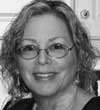 My guest today is Vicki Whitsitt, Scientific & Regulatory Affairs Manager for the Natural Products Association (NPA). We’ll be talking about the what defines a natural product, how natural products are labeled, what, if any, government regulations apply to them, and what the Natural Products Association is doing to identify products that meet their definition.Vicki works with the association’s self-regulatory quality assurance and regulatory education programs, and manages the NPA GMP Certification Program. In this capacity, she works closely with program advisors, third-party auditors and companies seeking NPA GMP certification. She has been involved in the development and revisions of the NPA GMP Standard and related program materials and GMP education for the past 14 years. Through her work, Ms. Whitsitt has developed competencies in dietary supplement law and regulation compliance. www.NPAinfo.org
My guest today is Vicki Whitsitt, Scientific & Regulatory Affairs Manager for the Natural Products Association (NPA). We’ll be talking about the what defines a natural product, how natural products are labeled, what, if any, government regulations apply to them, and what the Natural Products Association is doing to identify products that meet their definition.Vicki works with the association’s self-regulatory quality assurance and regulatory education programs, and manages the NPA GMP Certification Program. In this capacity, she works closely with program advisors, third-party auditors and companies seeking NPA GMP certification. She has been involved in the development and revisions of the NPA GMP Standard and related program materials and GMP education for the past 14 years. Through her work, Ms. Whitsitt has developed competencies in dietary supplement law and regulation compliance. www.NPAinfo.org
Toxic Chemicals in Children’s Products
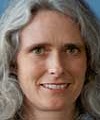
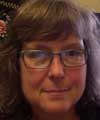 My guests today are Erika Schreder and Nancy Uding from Washington Toxics Coalition. We’ll be talking about their report Chemicals Revealed, which analyzes reports filed with the Washington State Department of Ecology (Ecology) by manufacturers, in compliance with the state’s Children’s Safe Products Act of 2008. More than 5,000 reports were filed that contained a total of 41 chemicals identified by Ecology as a concern for children’s health. Erika, Science Director, leads the Washington Toxics Coalition’s research program. She has worked on the Washington Toxics Coalition staff since 1997. She has led studies including an investigation of sources of pollution to Puget Sound, tests of toxic chemicals in toys and other children’s products, and biomonitoring studies of toxics in pregnant women and other Washingtonians. In the past, she led efforts to secure protections for salmon from pesticides and win greater support for organic and sustainable agriculture. She obtained an M.S. in ecology from the University of Michigan and a B.S. in molecular biology from MIT. Nancy, author of the report, has a Bachelor’s degree in Ecosystems Analysis from Huxley College at Western Washington University, and a Master’s in Environmental Engineering from the University of Washington. She studied freshwater and marine ecosystems as an undergrad and studied bioremediation of toxic organic compounds and the environmental chemistry of pollutants in grad school. Nancy has professional experience in hazardous waste management and in waste water engineering, but also has experience representing the interests of families of children with special needs at Seattle Children’s Hospital. http://watoxics.org/chemicalsrevealed
My guests today are Erika Schreder and Nancy Uding from Washington Toxics Coalition. We’ll be talking about their report Chemicals Revealed, which analyzes reports filed with the Washington State Department of Ecology (Ecology) by manufacturers, in compliance with the state’s Children’s Safe Products Act of 2008. More than 5,000 reports were filed that contained a total of 41 chemicals identified by Ecology as a concern for children’s health. Erika, Science Director, leads the Washington Toxics Coalition’s research program. She has worked on the Washington Toxics Coalition staff since 1997. She has led studies including an investigation of sources of pollution to Puget Sound, tests of toxic chemicals in toys and other children’s products, and biomonitoring studies of toxics in pregnant women and other Washingtonians. In the past, she led efforts to secure protections for salmon from pesticides and win greater support for organic and sustainable agriculture. She obtained an M.S. in ecology from the University of Michigan and a B.S. in molecular biology from MIT. Nancy, author of the report, has a Bachelor’s degree in Ecosystems Analysis from Huxley College at Western Washington University, and a Master’s in Environmental Engineering from the University of Washington. She studied freshwater and marine ecosystems as an undergrad and studied bioremediation of toxic organic compounds and the environmental chemistry of pollutants in grad school. Nancy has professional experience in hazardous waste management and in waste water engineering, but also has experience representing the interests of families of children with special needs at Seattle Children’s Hospital. http://watoxics.org/chemicalsrevealed



